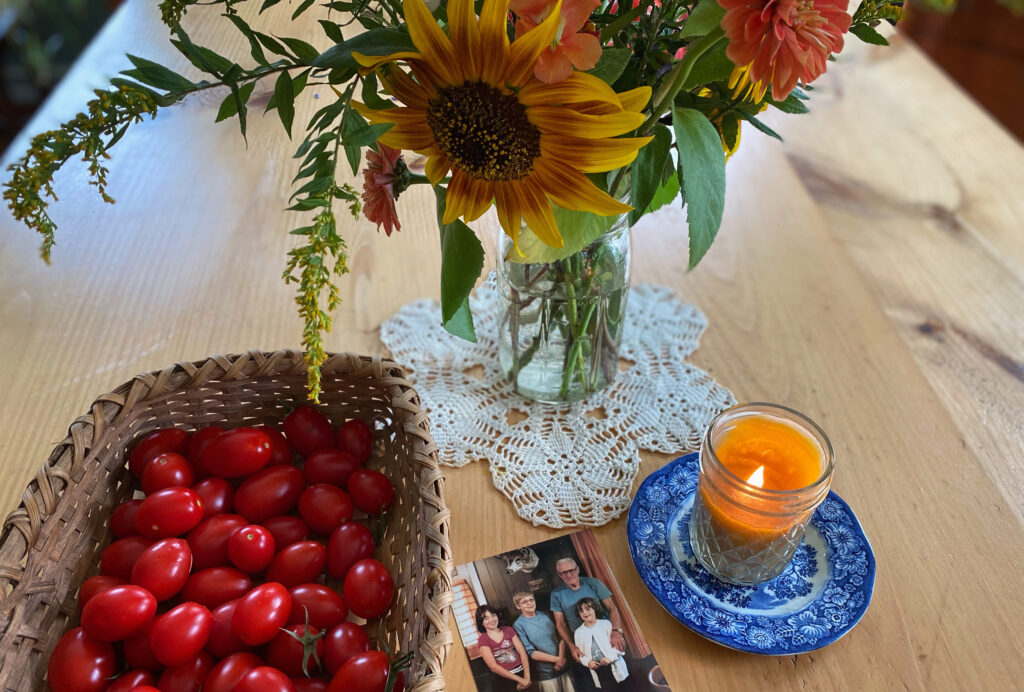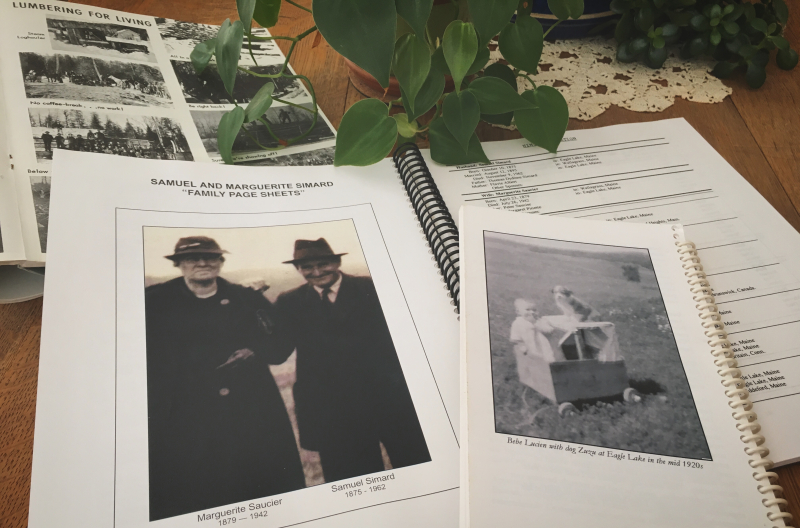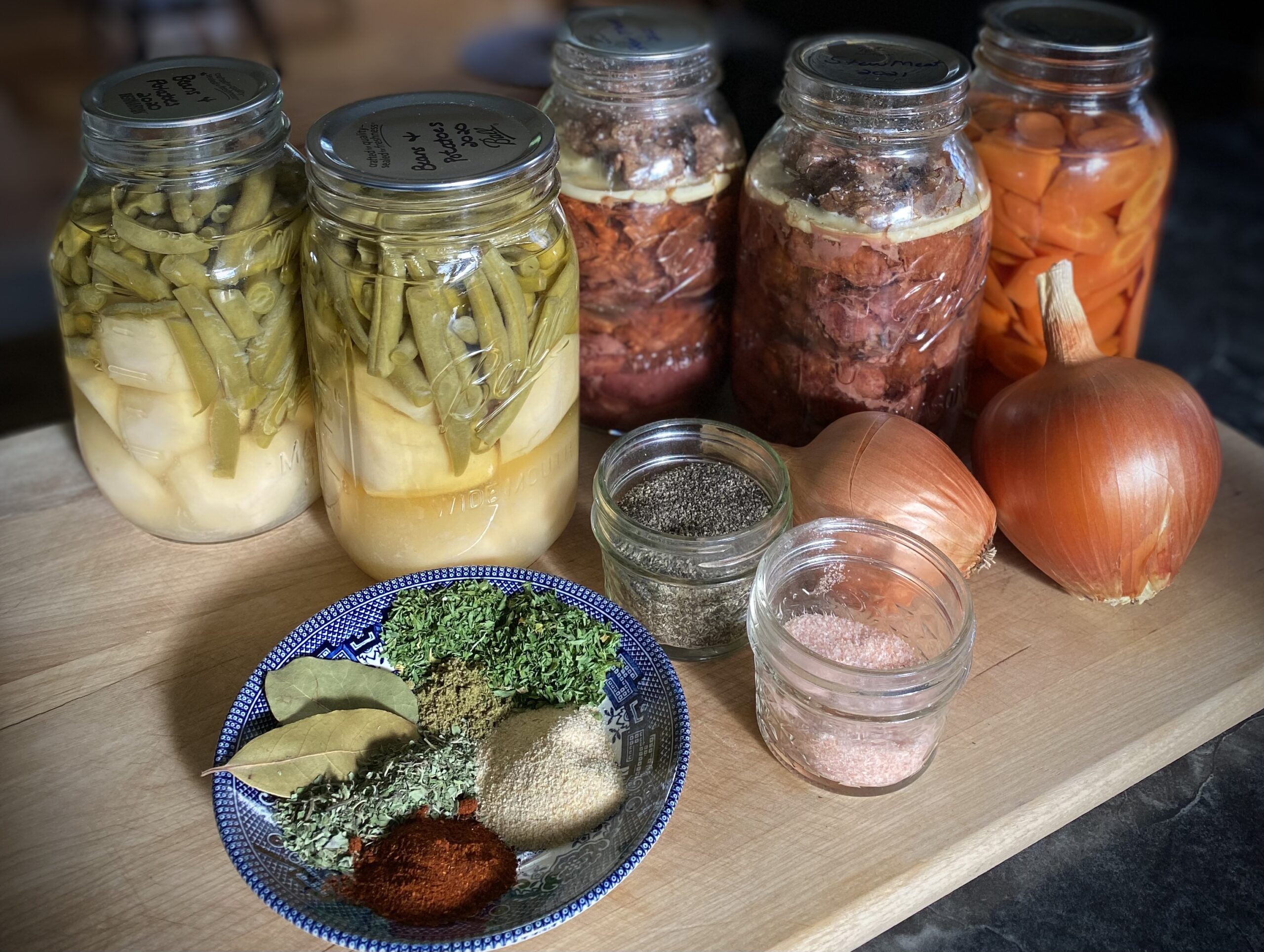We’ve been covering a lot of food growing and preserving this summer, and I still have more to share in that realm before the snow flies, but I wanted to pause here during these first days of September to talk about filling the larder. Specifically, to encourage you to use this month and next, to top of your reserves for the coming winter. Of course we should be addressing this at all times during the year as needed, but there is something about the brisk days of autumn that remind us of what we’ll need to hunker down. Please enjoy today’s podcast which includes my own steps for topping off the larder right now, encouragement for you to do the same (in your own way, of course), and the sharing of a story about the family farm of my great-great grandparents in Northern Maine during The Great Depression.

As I write this, Hurricane Ida has left devastation in her wake in Louisiana, and just overnight has caused unprecedented flooding in the northeast. The loss of life has been significant. Reports from the Louisiana region state that by day three people were already out of food and water. It is terrible to be without such basics; financial or physical hardship can prohibit people from stocking up or evacuating. In such instances, it is up to the rest of us who have the ability, to put back a little extra so that our neighbors do not go hungry within a few days of an emergency. As for those with means and ability who simply chose to ignore clear warnings, that would be up to each of us to decide how to help. I am sure we all would, but that could be frustrating. I read one story of a man who could not evacuate because he only made it 30 miles before running out of gas. To my mind, and I am sure to yours as well, it is unfathomable to not have a full tank of gas with an impending hurricane, if we have the means to do so. Power outages in the region are still at nearly one million customers and could last for weeks. For a period of time during the storm, 911 emergency services did not work, and there were extensive cell phone outages that lasted beyond the storm and may continue today. Would you have a backup communication plan in such an event? Breach in communication is one of the more difficult scenarios to plan for, but something we all need to consider.
I read remarks from a person who claimed “all the preps in the world aren’t going to help you in a flood.” But I disagree. Maybe at Point A, but that is why we need a plan to move to Point B if needed and if we are given warning. We live in a time when more often than not, these cataclysmic natural events are foretold; we have the ability to evacuate if that is the wise choice. Yes, there could be devastating material loss when we return (thinking of the terrible western wildfires here, too), but your family could still evacuate with necessary supplies and a degree of swiftness if prepared and responding proactively instead of reactively. If we take away nothing else from the hurricane and flash flooding, may we at least take away the reality that in times of natural disaster, help is not always on the way immediately. It’s just not possible. Are you prepared medically, with food and water, the means and plan to evacuate? These preparations will not prevent every possible hardship, but they will prevent most and can also be of help to others.
These are incredible learning opportunities for us. Unfortunately these lessons come at great loss to others, which is all the more reason to glean from the experience. There will always be events in life that we cannot prepare for, we can only do our best.

Here we are, the start of September, which I am told is National Preparedness Month, and I would like to encourage all of us to focus on our own emergency plans as well as our island of sanctuary (home), in this beautiful yet challenging world. We cannot prepare the world, but we can prepare our homes. Chop wood, carry water, as they say.

